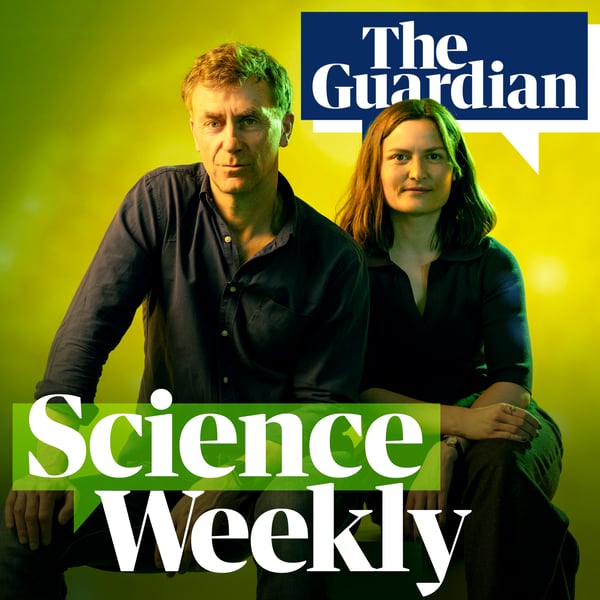Shrinking states: are we on a path to depopulation?
Science Weekly
The Guardian
4.2 • 938 Ratings
🗓️ 9 September 2025
⏱️ 22 minutes
🧾️ Download transcript
Summary
Transcript
Click on a timestamp to play from that location
| 0:00.0 | This is The Guardian. |
| 0:10.9 | Budapest has it all. |
| 0:12.8 | From its opulent thermal spas, |
| 0:14.9 | where you can soak away the stresses of everyday life, |
| 0:17.7 | to its deliciously diverse food culture, |
| 0:20.3 | its grand historic architecture, which tells the story of its past, to its blossly diverse food culture, its grand historic architecture, which |
| 0:22.2 | tells the story of its past, to its blossoming design scenes. With frequent flights with British |
| 0:27.9 | Airways, there's never been a better time to discover Hungary's vibrant capital. To find out |
| 0:33.4 | more, head to BA.com forward slash Budapest. This message was paid for by British Airways. |
| 0:41.4 | This is Generation 1, the climate podcast from University College London. Bringing groundbreaking |
| 0:46.7 | research from the front lines of climate science, we tackle climate action in all its forms, |
| 0:51.4 | from policy and activism to AI and urban planning. |
| 0:54.6 | I am a tech optimist. I am optimistic that it will help us solve some of the challenges, |
| 1:00.9 | especially related to climate change. |
| 1:02.9 | UCL's Generation 1, turning climate science into action. Subscribe now to UCL Generation 1 on your |
| 1:08.9 | favorite podcast platform. |
| 1:22.7 | For a long time, the number of humans on the planet stayed small and pretty stable. |
| 1:29.3 | 10,000 years ago, there were less than 5 million people around the world as a whole. But in the last few centuries, things began to change. |
| 1:33.3 | Humanity got better at keeping our children alive. |
| 1:36.3 | And so it's not that the number of births went up, it's that the number of infant and early life deaths went down. |
| 1:43.3 | Our population boomed. By 1800, they're around a billion people on the planet. |
| 1:51.0 | In the century after that, our numbers doubled. And the century after that, our numbers |
... |
Transcript will be available on the free plan in 27 days. Upgrade to see the full transcript now.
Disclaimer: The podcast and artwork embedded on this page are from The Guardian, and are the property of its owner and not affiliated with or endorsed by Tapesearch.
Generated transcripts are the property of The Guardian and are distributed freely under the Fair Use doctrine. Transcripts generated by Tapesearch are not guaranteed to be accurate.
Copyright © Tapesearch 2025.

